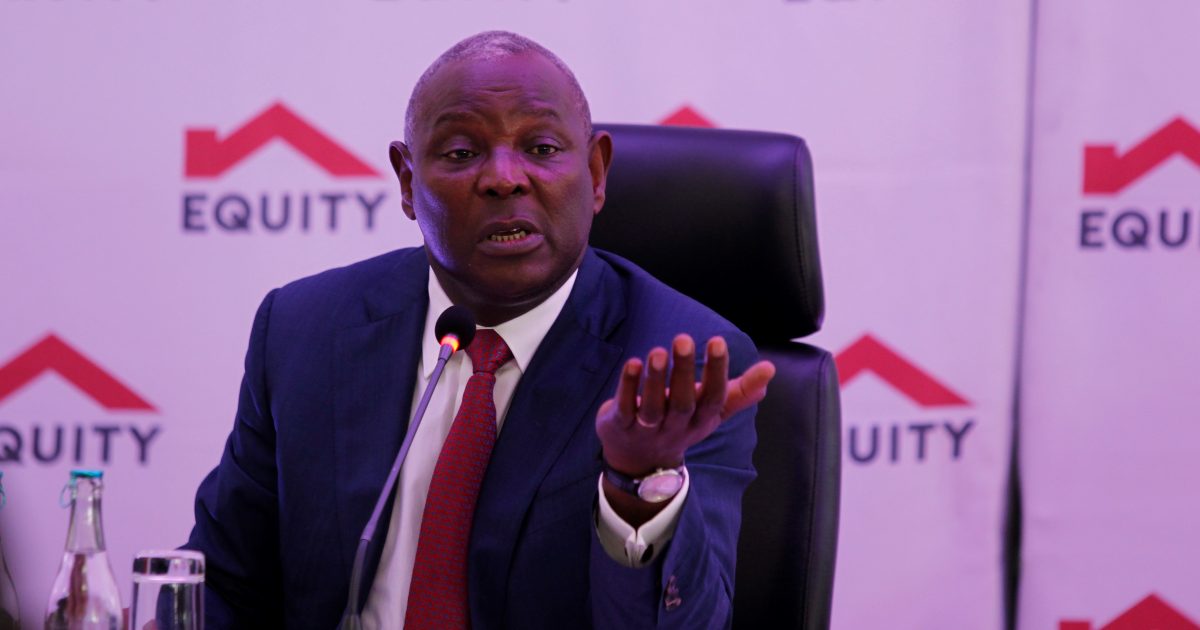Equity Bank has weathered a turbulent macroeconomic environment to register a 21% growth with total assets reaching Sh1.54 trillion.
While releasing the first quarter results for 2023 on Tuesday, Equity bank Chief Executive Officer (CEO) Dr James Mwangi said that the bank has recorded total assets growth of 55%, total deposit of 53%, total liabilities (loans) of 59%, gross revenue of 50%, and profit after tax of 53%.
Dr. Mwangi lauded the customers for having trust and banking with the equity bank that has seen the Group rated as the 4th strongest financial brand on earth.
After the tough COVID-19 risk operating environment, the company has recorded significant recovery and growth momentum. The pandemic has boosted digital transactions which the customers adopted and normalized and has placed the company out of the three years covid-19 period as a strongest digital business.
“The value of transactions has grown by 40% to Sh990.5 billion up from Sh708.3billion, the value of transactions on agency channels has grown by 44% to Sh681.6 billion, up from Sh472.3 billion,” Mwangi revealed.
“The group enjoys a defensive and agile balance sheet characterized by high liquidity with cash holding growing by 55% to Sh258.4 billion, up from Sh166.4 billion to constitute 17% of the total Group balance sheet assets,” said Mwangi while appreciating defense strategy the Group has adopted during the pandemic.
On the other hand, highlighting the contributions bank made to community the CEO Mwangi said the group foundation has engineered 40,000 scholarship programs in high school between form one and form four, attended to over 1.48 million patients cumulatively through 81 Equity Afia medical Centers.
He also added that Equity Bank contributed to ease adverse environmental changes by planting 21.8 million trees and has afforded clean and renewable energy devices for domestic use to 386,120 households as well as schools to transit from wood fuel driven kitchen to clean liquefied petroleum gas (LPG) fuel energy.
By Ali Sheikh Mohamed and Emma Jolly Wambui





